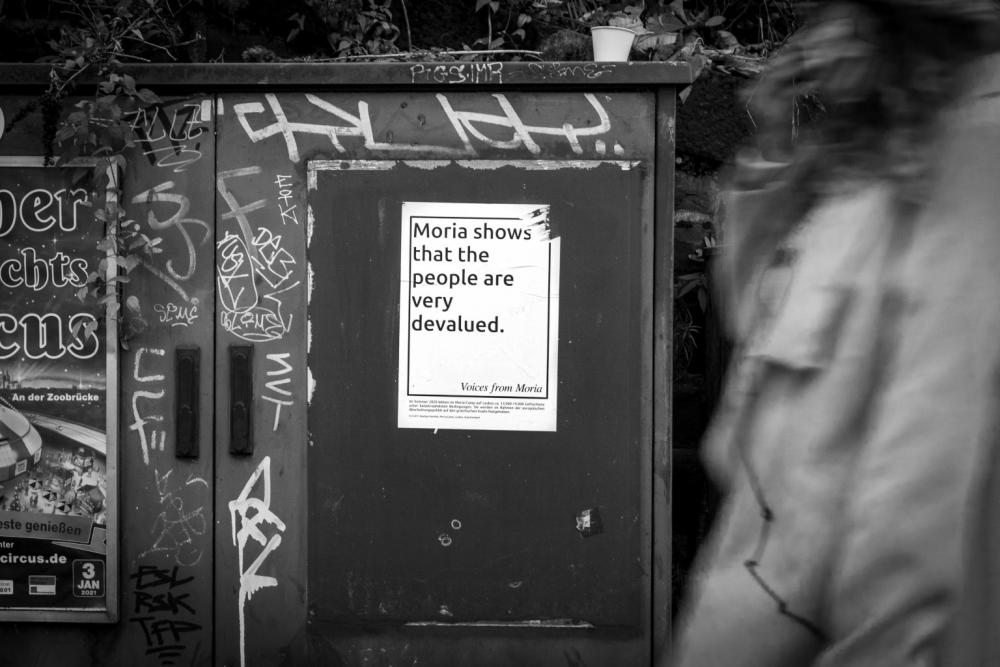"Confidentiality law" for NGOs and journalists in Greek refugee camps
by Yasmin Chreiteh
On the 30th November 2020, the Greek government announced a new legal order prohibiting volunteers and NGO workers from publishing any information and images from inside refugee camps. This applies during the time of their activities there as well as afterwards.
From now on, journalists will no longer be able to enter and leave the camp freely; camp residents are also prohibited from giving information to journalists, thereby from publishing it.
This new legal order provokes divided opinions regarding the repercussions it will have for the refugees inside the camp, the journalists, activists and NGO workers. Some activists argue that this will improve the privacy protection of the camp's residents. Residents have repeatedly complained that photos and stories of them have been taken and published without their consent.
However, many organisations vehemently criticise the newly announced regulation. It interferes massively with the freedoms of refugees within the camps, activists and NGO workers, and criminalises the publication of information and their work in gengeral. Refugees are already being intimidated in their interaction with the public. They are not allowed to take or share pictures in the camp, otherwise they risk fines or even expulsion from the camp. It is said that communication with the media could harm their asylum procedures. As a result, many refugees do not dare share information, not even anonymously.
The new law makes it much more difficult to point out abuses, to expose and publish omissions and breaches of the law by the authorities. Inhumane living conditions, such as scarce water and food supplies and unhygienic or missing sanitary facilities, could remain unnoticed due to the restrictions.
This measure is not the first attempt to silence solidarity workers or make their work more difficult. Only last year, laws on the compulsory registration of NGOs were further tightened by vaguely formulated provisions. These open up unlimited discretionary powers to refuse and revoke the registration of NGOs and individuals. Many NGOs have already stopped to publicly criticise the government in order not to make cooperation more difficult and thus put their work on the ground at risk.
The details of the implementation of this new law are uncertain, but what is clear is that a violation of this "confidential clause" will have legal consequences.
After its victory last year, the Greek right-wing party "New Democracy" has intensified its campaign against refugees and NGOs by massively influencing the public discourse. Instead of referring to refugees, they are nowc constantly labeled as "illegal migrants*", while NGOs are confronted with accusations such as people smuggling and espionage.
© Foto: Mika Baumeister, Unsplash
Sources and further information
- LaCroix: La Grèce bâillonne la parole dans les camps de migrants
- Reliefweb: Greece’s new confidentiality law aims to conceal grave violations against asylum seekers
- Forbes: Greece has intensified its crackdown on NGOs with a new confidentiality law
- Mare Liberum: Moria 2: Censorship, fear and the loss of freedom of press
Tuesday, 2nd February 2021

